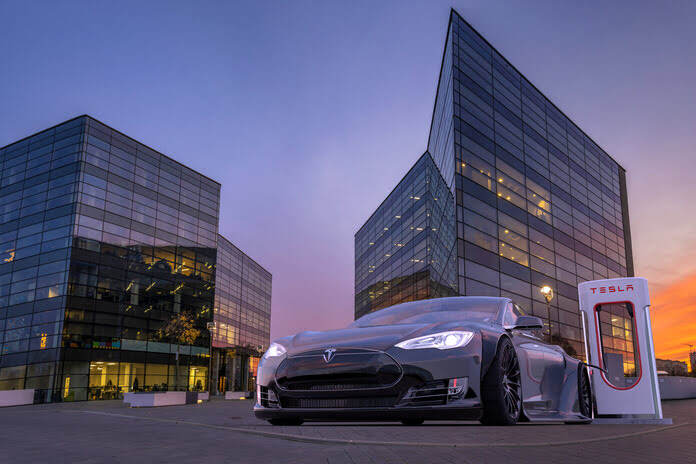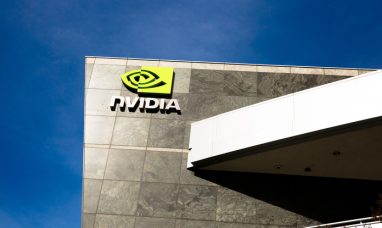Tesla (NASDAQ:TSLA) has been a standout performer this year, delivering a robust 78% year-to-date gain. However, the past month has seen a sharp pullback, resulting in a 16% decline. This dip can be attributed to increased competition in the electric vehicle (EV) market and the impact of rising interest rates, which have affected not only Tesla but the entire automotive industry. Furthermore, Tesla’s strategy of reducing average selling prices to gain market share has impacted both its profit margins and stock price.
Let’s delve into the factors that can help determine whether it’s a good time to consider buying Tesla stock. But before we do that, let’s get a more comprehensive understanding of Tesla.
About Tesla
Tesla specializes in designing and manufacturing fully electric vehicles, solar energy solutions, and energy storage products. The company also offers various services related to its products, such as maintenance, installation, operation, and financial assistance. Tesla has been expanding its focus on artificial intelligence (AI), robotics, and automation.
In 2023, Tesla manufactured 1,350,996 consumer vehicles and delivered 1,324,074 consumer vehicles in the first three quarters of the year. Additionally, the company deployed 11.52-gigawatt hours of energy storage products and 182 megawatts of solar energy systems during the same period.
The Bull Case
Tesla is well-positioned to maintain its dominance in the EV market, even in the face of increased competition. This is due to the company’s commitment to expanding its manufacturing capabilities, including the production of new vehicle models and next-generation platforms. Tesla’s focus on cost reduction, continuous innovation, and the ability to procure and manufacture components locally allows it to offer competitively priced vehicles and secure a significant market share.
Being a cost leader in the EV sector, Tesla boasts industry-leading margins. The company leverages this margin advantage to aggressively cut prices and boost sales volumes, creating significant pressure on competitors who must also lower their prices, even at the cost of profitability. In the future, its efforts to reduce the cost of goods sold per vehicle will further enhance its competitive position.
In addition to cost reduction, Tesla continues to generate demand and build brand awareness for its vehicles through performance improvements and features driven by artificial intelligence, like Autopilot and Full Self-Driving (FSD). The introduction of new vehicles, such as the highly-anticipated Cybertruck, positions the company well to protect its market share.
In summary, Tesla is well-equipped not only to retain its leadership in the EV industry but also to expand it. This will allow the company to benefit from the ongoing shift towards electrification in the automotive sector and increasing environmental regulations.
The Bear Case
While Tesla’s long-term prospects appear promising, its strategy of lowering prices could offset the benefits of cost-reduction efforts and put pressure on its earnings in the coming quarters. This may limit the stock’s upward potential.
Tesla’s operating margin has already declined from 17.2% in the third quarter of 2022 to 7.6% in the third quarter of 2023. This significant drop indicates a diminishing margin advantage over competitors, raising concerns about its valuation.
Historically, Tesla stock traded at a premium compared to peers due to its strong sales volumes and industry-leading margins. However, as the margin gap with competitors narrows, justifying Tesla’s premium valuation becomes more challenging.
The Final Verdict: Buy, Sell, or Hold?
Tesla is well-positioned for long-term growth, given its dominant position in the EV market and expanding vehicle production and delivery. Its comprehensive range of solutions, including charging infrastructure, energy storage, FSD, and software services, bodes well for future growth.
Nevertheless, Tesla’s profit margins are expected to face ongoing challenges in the foreseeable future. This is primarily due to reduced average selling prices and increased investments in artificial intelligence and other research and development projects. As a result, the potential for upside in the stock may be limited, and most analysts are cautious about recommending TSLA in the short term.
Out of the 26 analysts covering Tesla stock, seven have a “Strong Buy” recommendation, two recommend “Moderate Buy,” 14 have a “Hold,” and three suggest “Strong Sell.” Moreover, the average price target is $239.08, implying a modest 9% upside potential from current levels.
Featured Image: Unsplash















